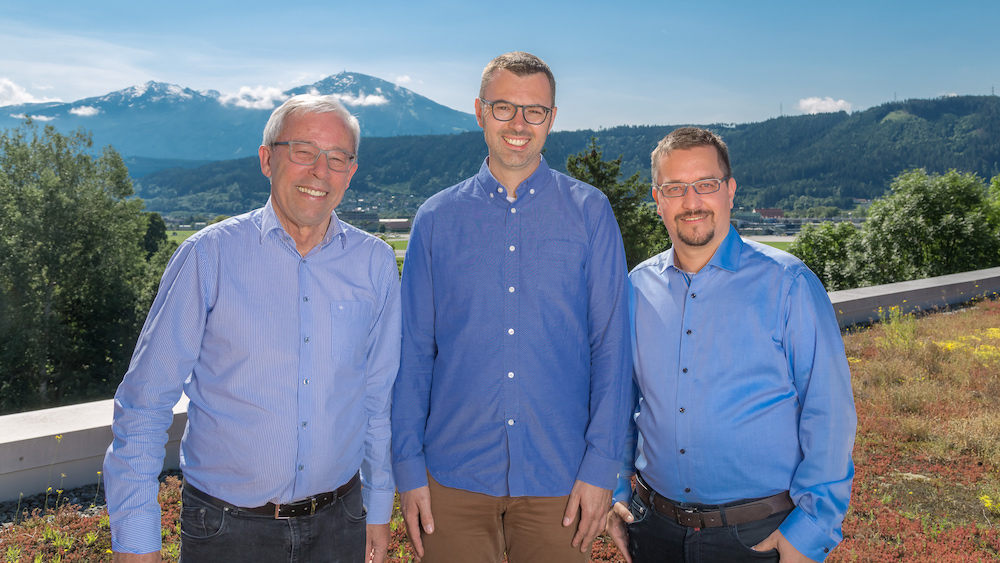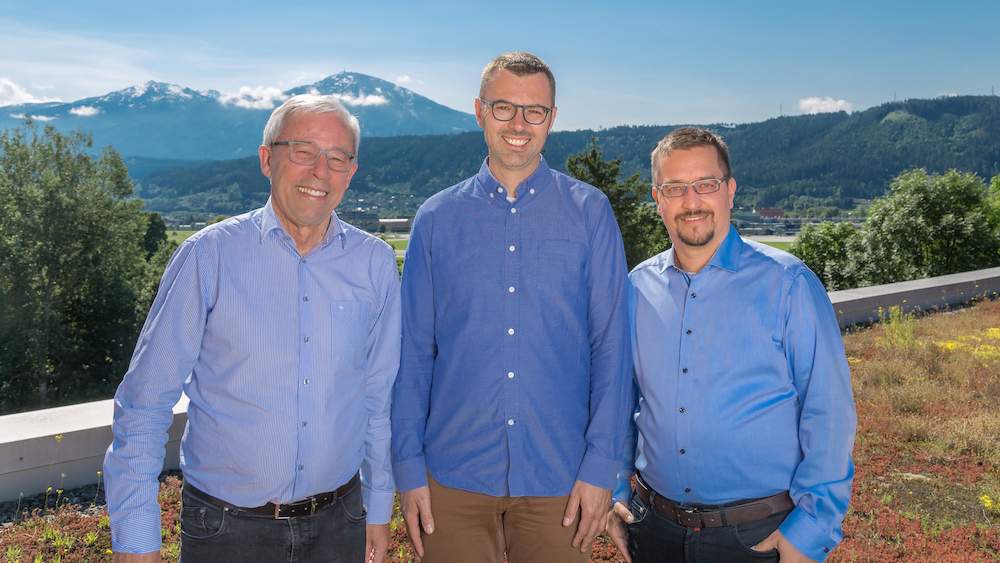
Picture showing Prof. Peter Zoller (left, Univ. of Innsbruck), Dr. Markus Hoffmann (Google), and Dr. Thomas Monz (AQT) upon completing the projects M. R. Knabl
Programming quantum computers differs radically from what programmers are used today and thus new programming languages are required. A collaborative effort by Alpine Quantum Technologies (AQT) and the University of Innsbruck allows direct access to the ion-trap quantum computer in Innsbruck via Cirq, a framework developed by Google focused on developing and implementing quantum algorithms. Cirq can be used to explore quantum algorithms on the different hardware architectures, superconducting electronics and trapped ions.
Quantum computers and software
Several research facilities and companies are working on the realisation of quantum computers. There are multiple physical platforms that might host a future quantum computer, where AQT pursues trapped ions and Google is following an approach based on superconducting electronics. Each approach has different capabilities and limitations, generally reflected in different programming languages dependent on the device. This mix of program languages makes it hard for software engineers and programmers to use these quantum computer prototypes as well as to explore the capabilities of different architectures.
Quantum Innsbruck and Quantum Munich
Google developed a Python framework. called Cirq for creating, editing, and invoking Noisy Intermediate Scale Quantum (NISQ) circuits Dr. Markus Hoffmann from Google Munich explains “It’s great to see the adoption of Cirq following the spirit of the Apache 2.0 open source license and making further hardware platforms accessible to the Cirq developer community.” The library supports multiple hardware architectures, based on superconducting electronics and atomic systems. Now, researchers and industry partners can readily run their quantum software on the Innsbruck quantum computers and also enable students to build out expertise on running quantum algorithms on actual hardware. Besides research, these efforts also benefit the quantum computer startup AQT in Austria. CEO Dr. Thomas Monz “is delighted to provide such a simple and effective interface between international quantum software developers and our Innsbruck-based quantum computer infrastructure to facilitate the realization of an entire suite of quantum apps for research and industry partners.” Dr. Philipp Schindler at the University of Innsbruck is convinced that the interface will enable new collaborations with research partners around the world.
Quantum computers and software
Several research facilities and companies are working on the realisation of quantum computers. There are multiple physical platforms that might host a future quantum computer, where AQT pursues trapped ions and Google is following an approach based on superconducting electronics. Each approach has different capabilities and limitations, generally reflected in different programming languages dependent on the device. This mix of program languages makes it hard for software engineers and programmers to use these quantum computer prototypes as well as to explore the capabilities of different architectures.
Quantum Innsbruck and Quantum Munich
Google developed a Python framework. called Cirq for creating, editing, and invoking Noisy Intermediate Scale Quantum (NISQ) circuits Dr. Markus Hoffmann from Google Munich explains “It’s great to see the adoption of Cirq following the spirit of the Apache 2.0 open source license and making further hardware platforms accessible to the Cirq developer community.” The library supports multiple hardware architectures, based on superconducting electronics and atomic systems. Now, researchers and industry partners can readily run their quantum software on the Innsbruck quantum computers and also enable students to build out expertise on running quantum algorithms on actual hardware. Besides research, these efforts also benefit the quantum computer startup AQT in Austria. CEO Dr. Thomas Monz “is delighted to provide such a simple and effective interface between international quantum software developers and our Innsbruck-based quantum computer infrastructure to facilitate the realization of an entire suite of quantum apps for research and industry partners.” Dr. Philipp Schindler at the University of Innsbruck is convinced that the interface will enable new collaborations with research partners around the world.




 IonQ Achieves Industry Leading Performance on Next Generation Barium Qubits
IonQ Achieves Industry Leading Performance on Next Generation Barium Qubits